People of faith often find richer experience as they age


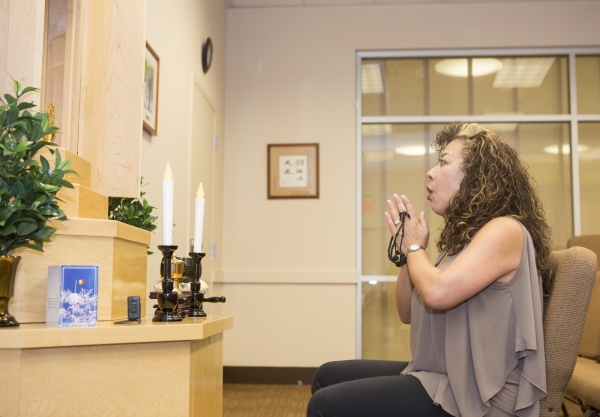
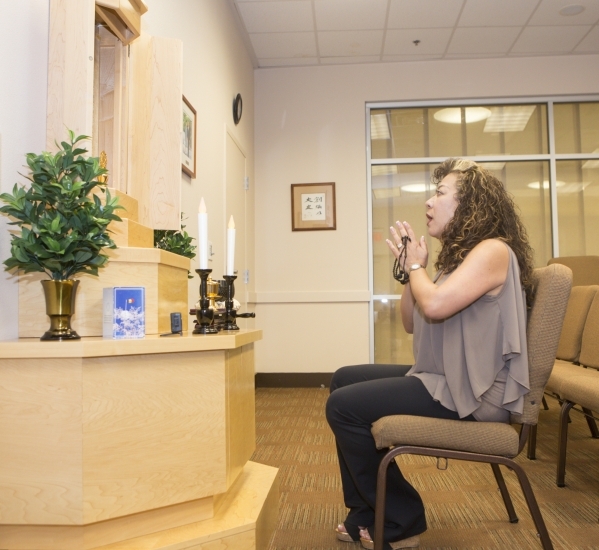
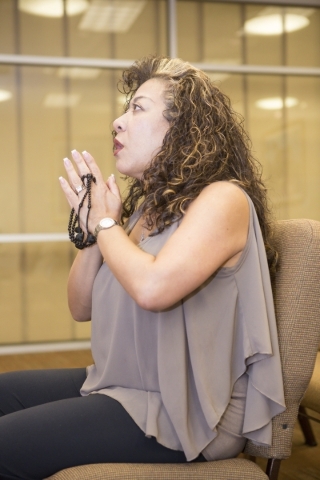
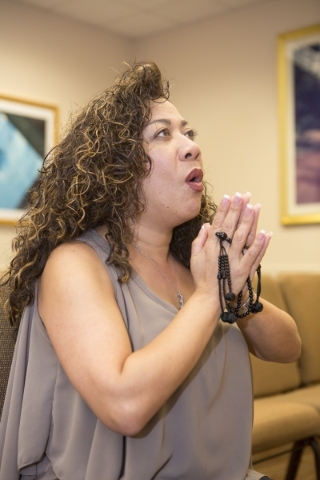
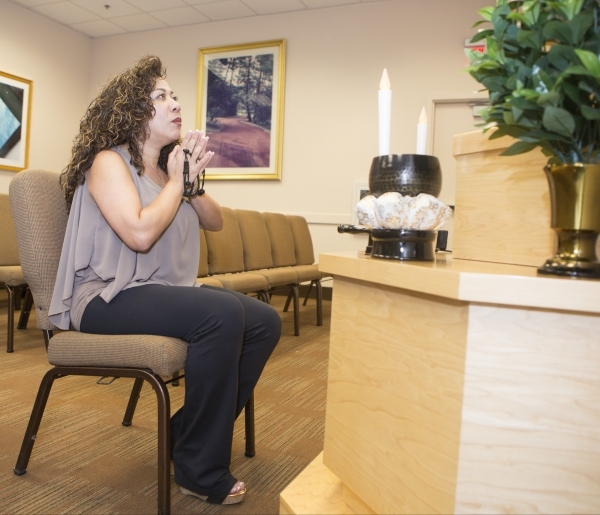
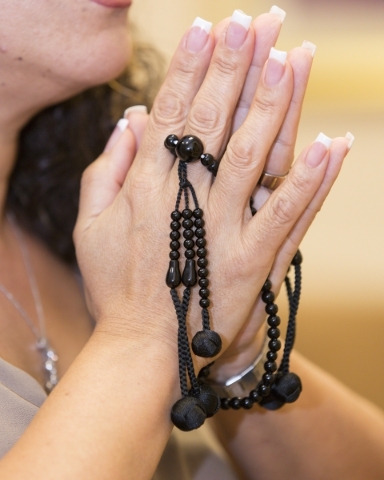
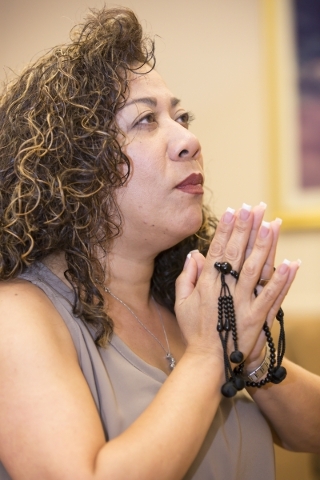
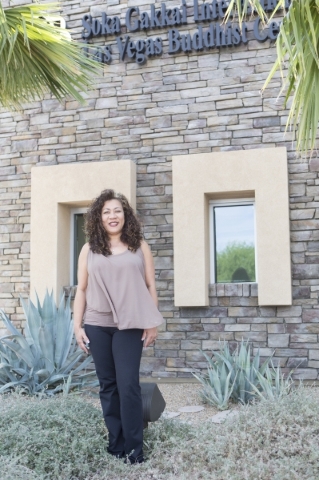
Editor’s note: This is the second of a two-part series about faith and aging.
During a time when every societal shift is sliced into wedges of data by the latest research poll, religion has been boiled down to how often we sit in the pews, how much we pray, even if we are “absolutely certain” to “not at all certain” about a belief in God.
What can quickly get pushed aside is the larger picture. Older adults, for example, are far more likely to claim a religion than their children or grandchildren, according to studies. But even the most cursory search of the Internet shows that the big takeaway from all the number crunching is that 20- and 30-somethings somehow need to be won over.
The nuances of faith among the most devoted generations — what religion brings to their lives, even how they find a sense of the spiritual — end up getting lost.
Robert Atchley, a professor of gerontology emeritus who served as director of the Scripps Gerontology Center at Miami University in Ohio, had what he calls his first “epiphany” on this subject years ago while interviewing dozens of older, retired women for a research project.
His plan was to see how they were adapting to their lives after leaving the workforce, yet he quickly realized there was something going on that he wanted to bottle up and keep for himself.
“They knew who they were, they were totally comfortable in their own being, they knew what they wanted out of life and how to get it. I mean, I came away from doing interviews with a hundred or so of those people and I said, “Whatever it is they’ve got, I want some of it,'” Atchley recalled.
Part of being comfortable in their own skin, he found, was living with a sense of the spiritual. As time wore on, he began to study the issue at length and in 2009 released a book called “Spirituality and Aging” (Johns Hopkins University Press).
As adults age, the way they see their religion and how it resonates in their lives often becomes more personal, he said. They might pick and choose what’s most important to them in their religious beliefs and practices, or enjoy a stronger connection with their religious community.
Elements of their religion also may provide more comfort than ever before and a deeper spiritual connection, or transcending the self and connecting with a higher power and/or the sacred, he said. There also can be a sort of moment-to-moment spirituality that finds more meaning in the everyday, whether it’s through nature, music, community work, meditation or other means.
“There’s a concept called gerotranscendence; it’s the idea that as people get older they tend to be drawn to a much more transcendent perspective about what they’re up to and what’s going on. It doesn’t mean you’re off in never-never land, it means that you are actually present in a way that you weren’t when your head was running everything a mile a minute,” he said.
In her work looking at the issue of aging and resiliency, Lydia Manning, director of the Center for Gerontology at Concordia University in Chicago, noted that spirituality emerged as an important factor in the aging process. She has found that older adults often use their religious faith and spirituality as tools for helping them manage adversity.
During one study on resiliency, she interviewed 64 older adults, and only 19 reported that spirituality or religion were not part of how they negotiated through life’s struggles. Even hardships such as serious illness or the death of a loved one were often seen as “invitations to strengthen their spiritual muscle,” whether it was through practices such as prayer, meditation or connecting with others in their spiritual community, she said.
In 2012, Manning published the findings of another study focusing on spiritual resilience. It included multiple interviews with six women in their 80s, five who identified as Christians and one who was Unitarian Universalist. What she found was a sense of purpose and the ability to reframe their hardships into opportunities to practice a gratitude that was “expressed in connection with their spirituality and personal relationship with God.”
In terms of how individual faith is molded and shaped as time goes on, there is no easy answer, according to the experts. For some older adults, attending worship services can be a means of strong social and spiritual support. The baby boomers, they add, are going to continue to redefine societal norms, including what it means to be spiritual or religious.
Vernon Towne, a retired Presbyterian pastor of 40 years who most recently served at Mountain View Presbyterian Church in Sun City Summerlin, noted that the evolution of someone’s religious or spiritual life is very personal and comes down to individual experiences, their level of faith, values and beliefs.
There is little doubt, however, that growing older brings forth the big questions of mortality, including one’s relationship to God. Sometimes this means turning to particular doctrines and rituals of a religion that have held a deep meaning in the past, he said.
Towne, who is 73, also points to a growth in the day-to-day spiritual aspects of faith as we age or at least more of an awareness of the “divine,” whether it’s in the present or the past. In his own life, the spiritual has come through in moments of silent prayer and meditation, divine coincidences, even the beauty of a thunderstorm, he said.
For his wife, Margaret, who holds a doctorate in education and has taught both critical thinking and science-and-religion courses during her career, faith is a lifetime journey that continues, no matter one’s age. The gift of growing older is having the time to discuss it with others, explore its mysteries and hang on to a sense of humility that comes from not having all the answers, she said.
“There’s so much we don’t understand, I guess that’s where the (expression), ‘You do it by faith,’ comes from, because you don’t have the knowledge. So I think the humility of just being able to say, ‘I have to leave it in the Lord’s hands, I don’t know this, I have to trust him and have faith.'”
The idea that religion and spirituality are anything but static holds true for others.
Sandra Dunn, Women’s Division region leader with the Las Vegas SGI Buddhist center, has seen her own spirituality evolve into something that holds more of a “preciousness and profundity” at the age of 53 than it did when she was younger, she said.
She grew up in a Buddhist home, but it has been the joys and struggles of life that have given her a clearer understanding of her faith. The daily prayers and chanting are precious moments of self-reflection, she said, but it’s the belief that she has the ability to transform her life in positive ways that is continually unfolding.
“You start to realize, you know, anything can be a bad or good situation, anything can be positive or negative. It’s really how we look at it and how we choose to pursue that with our behavior,” she said.
“My mom, who is 82, her life is so carefree, I can’t imagine not wanting to be like that at her age,” she added. “I guess the quality of life is what really attracts me (to Buddhism). As I get older, I see these examples in my life of people who are strong believers, strong practitioners.”
Sitting in the living room of their northwest Las Vegas home, Binnie and Clay Wilkin talked about the way their Unitarian Universalist religion embraces principles that only resonate more and more as time goes by. For them, spirituality is about a personal search for what rings true to the individual, including the exploration of different faiths.
Binnie was already what she calls a “Christian-based spiritual voyager” before she started attending Unitarian Universalist services with her husband about 10 years ago. “Once we establish that there is one truth, that means that our life is built on rejecting other truths, and it’s the one thing about traditional religions that has disturbed me all these years,” Binnie said.
As an interracial couple, their lives have been a reflection of being open to differences and the acceptance of varying ways of seeing the world. When asked what they considered the most important principle of their religion, Clay, who is 86, immediately pointed to a belief in the “interconnectedness of all life.”
Another theme in the conversation was the continual desire to learn.
“I’m not in a position of power to affect great changes, but sometimes it’s what you can do if you simply could talk to somebody and pass on something that may be of value to them, and also to take from them what may be of value to you, and that’s a lifelong thing, it doesn’t end,” Clay said.












